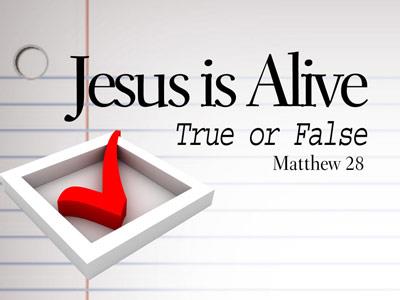-
Living In Fear" Series
Contributed by H. Kevin Derr on Sep 17, 2004 (message contributor)
Summary: An expositoin of 1 Peter 1:17-21
17Since you call on a Father who judges each man’s work impartially, live your lives as strangers here in reverent fear. 18For you know that it was not with perishable things such as silver or gold that you were redeemed from the empty way of life handed down to you from your forefathers, 19but with the precious blood of Christ, a lamb without blemish or defect. 20He was chosen before the creation of the world, but was revealed in these last times for your sake. 21Through him you believe in God, who raised him from the dead and glorified him, and so your faith and hope are in God.
It is very easy to place our trust in the things we can control, or at least have an illusion of control over. Yet, there is much that is beyond our ability to control or even at times comprehend. With the quick pace of technological innovation that causes our culture morph, and presents us with a myriad of choices and possibilities we need a fixed point to make our way through the chaos of life and culture. Our morphing culture is quick to tell us that there is no right or wrong, nothing in and of itself that is wrong. If we attempt to find a fixed point in the cultural landscape it will subtly shift before we even realize the transition. We will end up with something we never intended or wanted. Cultural icons, institutions, organizations, people and ideas with shift before we have the ability to realize what has happen.
Such cultural flux is not a new thing, while at times cultures have experienced a degree of stability, there is always change and transformation of ideas, passages and thoughts. In the world that Peter knew, this was happening as well, the mix of Greek, Roman, Asian, African thoughts and ideas as well as those from the barbarians beyond civilization had an effect on the culture of the time. But, what Peter was reminding the church of was something more useful, a different way of life, a different lifestyle. What we often forget is that our lives are centered in what we value, and these values form the basis of our lifestyle. If we fix our minds on cultural points, we will live a lifestyle that is cultural centered, focused and dependent. It will be as inconsistent and as changing as what is popular in our culture. Oh, we may choose a less rapidly changing icon than the latest music fad, but all of our culturally centered ideas will change and morph.
Peter reminds us of the fixed point that will allow us to maneuver through the dangers of our culture and all those that will come. There is for us the constant point, a stable place, a rock and shelter that is the Father. While things may shift around us, while cultural may suggest new norms of morality and ethics, for us they are not centered in the changes of our culture, but rather in the character of our God. And while we will express much of our faith through the culture we know, if we are centered in character of the Father, we will have a consistent point in a constantly changing world.
Prayer
I. Our first point of investigation is recognize whom we belong to, the Father, but this does not
give us an excuse for sin, rather we should be all the more aware of consequences of
sin.17Since you call on a Father who judges each man’s work impartially, or perhaps a better
translation would be something along these lines, “And if you call upon the One, as Father,
who judges each one according to their work”
A. Peter is telling us about the Father, about his character, and the point that he is making
is that God will judge impartially. It is not a question of if God will judge, it is a
matter of when God judges, he judges impartially. He is not going to show favoritism,
and from the text, there is a good indication that God is already judging.
1. When we call on or invoke God’s presence, we are making an appeal, calling
attention to, we are asking God to recognize us.
2. We are asking him to recognize us specifically as his children when we call
him Father. It indicates how we understand ourselves in relationship to God,
he is the Father we are his children and each other siblings.
A. Father is not a common title for God in the OT, we find references in
Jeremiah 3:19 and Malachi 1:6.
B. It is likely that the use of Father comes from Jesus’ use of Aba, as a
means of addressing God, Luke 11:2 is one of the best places to see this

 Sermon Central
Sermon Central



